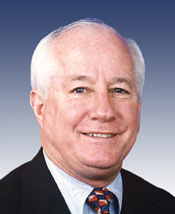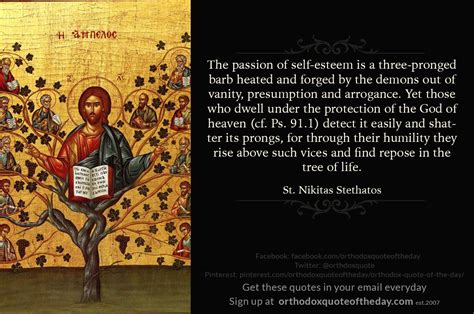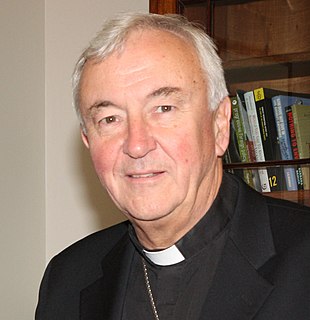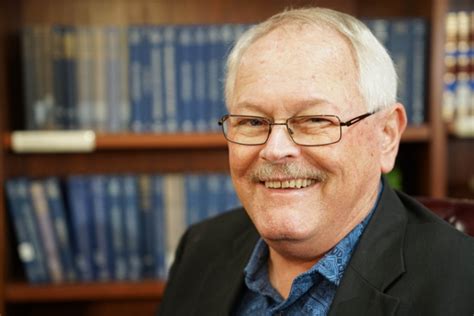A Quote by Pope Benedict XVI
Saint Paul asks his disciple Timothy to "aim at faith" (2 Tim 2:22) with the same constancy as when he was a boy (cf. 2 Tim 3:15). This invitation is directed to each of us, that none of us grow lazy in the faith. It is the lifelong companion that makes it possible to perceive, ever anew, the marvels that God works for us.
Related Quotes
His Majesty knows best what is suitable for us. There's no need for us to be advising Him about what He should give us, for He can rightly tell us that we don't know what we're asking for (cf. Mt. 20:22). The whole aim of any person who is beginning prayer ? and don't forget this, because it's very important ? should be that he work and prepare himself with determination and every possible effort to bring his will into conformity with God's will.
Faith is the root, the necessary beginning. Hope is the stem, the energy that makes the plant grow. Love is the fruit, the flower, the visible product, the bottom line. The plant of our new life in Christ is one; the life of God comes into us by faith, through us by hope, and out of us by the works of love.
Faith is the framework for living. It gives us the spirit and heart that affects everything we do. If gives us hope each day. Faith gives us purpose to right wrongs, to preserve our families, and to teach our children values. Faith gives us conscience to keep us honest, even when nobody is looking. And, faith can change lives; I know first hand, because faith changed mine.
What brings us to perfection? An ingrained faith in God, the 'faith that makes real the things for which we hope' (Heb. 11:1), the faith whereby Abel offered to God a better sacrifice than Cain and was commended as righteous (cf. Heb 11:4). It is such faith that fills those assiduous in the search for truth with great aspiration for the exalted gifts of God, and leads them to the spiritual knowledge of created beings; and it pours into their hearts the inexhaustible treasures of the Spirit.
In the doctrine of Providence, we have a specific Christian confession exclusively possible through faith in Jesus Christ. This faith is no general, vague notion of Providence. It has a concrete focus: ‘If God is for us, who is against us? He that spared not his own Son, but delivered him up for us all, how shall he not also with him freely give us all things?’ (Rom.8:31, 32).
In the beginning was belief, foolish belief, and faith, empty faith, and illusion, the terrible illusion. ... We believed in God, had faith in man, and lived with the illusion that in each one of us is a sacred spark from the fire of the shekinah, that each one carried in his eyes and in his soul the sign of God. This was the source—if not the cause—of all our misfortune.
Faith is indeed the energy of our whole universe directed to the highest form of being. Faith gives stability to our view of the universe. By faith we are convinced that our impressions of things without are not dreams or delusions, but, for us, true representations of our environment. By faith we are convinced that the signs of permanence, order, progress, which we observe in nature are true. By faith we are convinced that fellowship is possible with our fellow man and with God.
The blessed Paul argues that we are saved by faith, which he declares to be not from us but a gift from God. Thus there cannot possibly be true salvation where there is no true faith, and, since this faith is divinely enabled, it is without doubt bestowed by his free generosity. Where there is true belief through true faith, true salvation certainly accompanies it. Anyone who departs from true faith will not possess the grace of true salvation.
We want Shraddhâ, we want faith in our own selves. Strength is life, weakness is death. 'We are the Âtman, deathless and free; pure, pure by nature. Can we ever commit any sin? Impossible!' - such a faith is needed. Such a faith makes men of us, makes gods of us. It is by losing this idea of Shraddha that the country has gone to ruin.




































